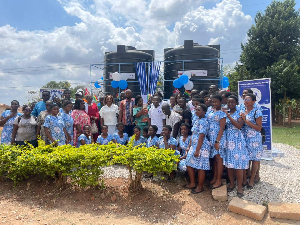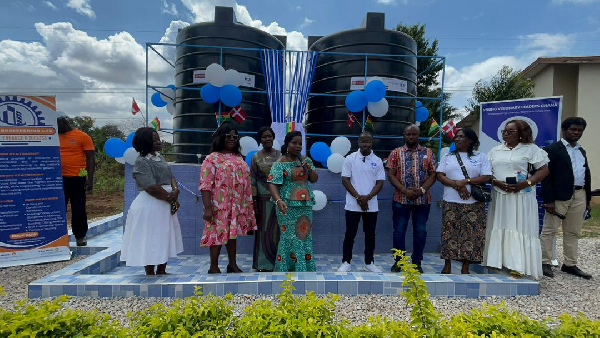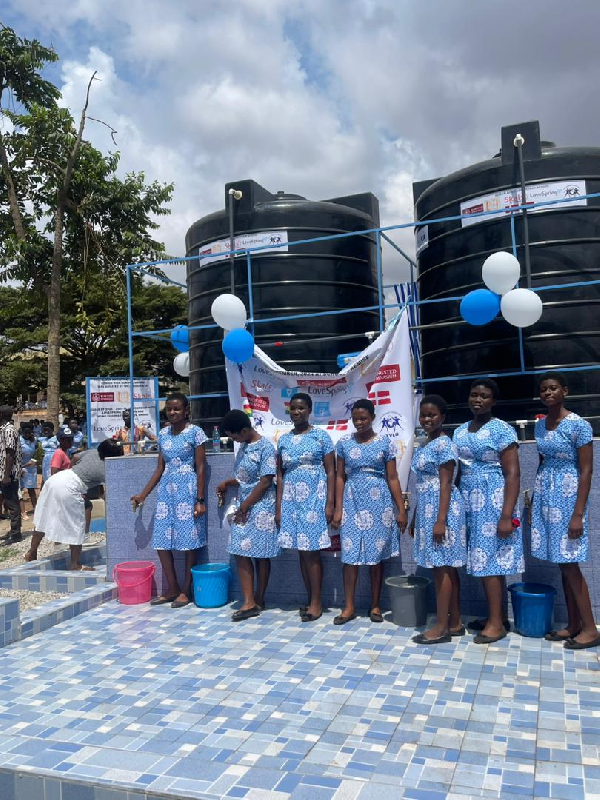 Some of the students by the water tankers
Some of the students by the water tankers
The Kumasi Girls Senior High School in Ashanti Region has commissioned a mechanized water project, marking a significant step in the school's efforts to provide clean and sustainable water to its students and staff.
The project, launched with the support of Danish partners Rungsted Gymnasium, Ega Ungdoms Hojskole, Skals Efterskole, and LoveSpring, is aimed at addressing water challenges and enhancing the overall well-being of the school community.
Speaking at the commissioning ceremony, Mr. Joseph Tettey Afangbe, Founder and Executive Director of Young Visionary Leaders Ghana, emphasised the importance of clean water in education.
He highlighted how the project not only meets an immediate need but also aligns with global development goals, specifically Sustainable Development Goal 6 (SDG6), which focuses on water and sanitation, and SDG4, which promotes inclusive and equitable education.
"Water is life, especially in schools where the health and academic performance of students are closely linked to access to clean water. This project eliminates barriers like students missing classes to search for water or suffering from waterborne diseases," Mr. Afangbe said.
Mr. Afangbe expressed deep gratitude to the Danish partners for their unwavering support, noting that the initiative serves as a symbol of hope, progress, and cross-border collaboration.
“This project stands as a testament to the enduring partnership between Ghana and Denmark, promoting development through shared values,” he added.
With 35% of schools in Ghana lacking reliable access to safe water, this project is an investment in the health and future of Kumasi Girls Senior High School students, allowing them to focus on their education without disruptions. The school now joins the ranks of institutions that have successfully addressed the critical need for water, sanitation, and hygiene (WASH) facilities.
Mr. Afangbe concluded by calling for more initiatives like this, expressing optimism for continued partnerships that will help achieve sustainable development goals in Ghana.

